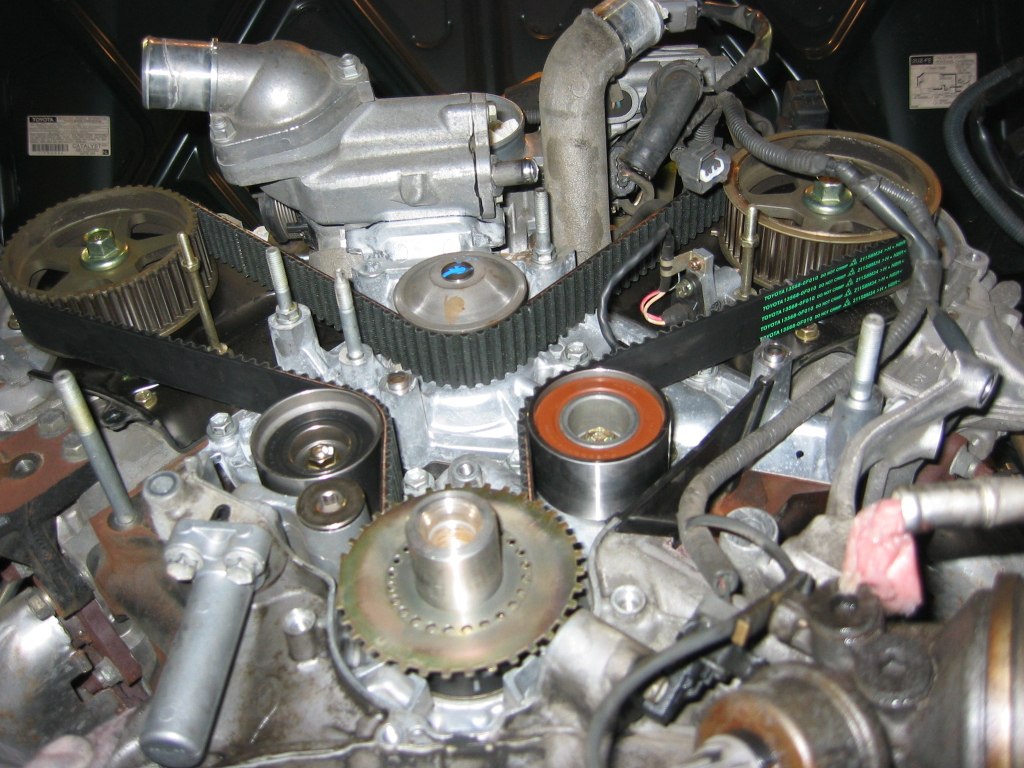Timing belts
Timing Belt Replacement
Timing belts are fitted to engines with an overhead cam. The function of the timing belt is to open and close the intake valves and exhaust valves on an engine. The intake valve lets in fuel and the exhaust valve to expel gasses after combustion. A timing belt controls the movement of the valves to coincide with the motion of the pistons.

Why do Timing Belts need replacing?
To reduce clatter, timing belts are no longer made as chains. The compromise for a quiet engine is that the material timing belts are made from can fail.
There are two types of engine that use timing belts; “interference” engines and “non-interference” engines. Interference engines have a very, very small amount of space between the valves and pistons, while non-interference engines tend to have more room. In an interference engine, space between the valves and pistons is minute. A slip or break in the belt can send a piston flying into an open valve. If this happens, the moving parts of an engine will soon become an unusable mess of metal. Generally speaking, timing belt failure in a non-interference engine is less likely to terminate the life of an engine.
So if the timing belt fails, no fuel is available for the engine which will stop running although inertia causes the moving parts to continue for a moment usually causing catastrophic damage.
The car will stop running.
You will not be able to get it started again.
It will need a tow truck to come pick up your vehicle.
Replace the Timing Belt at the specified service interval
Timing belt failure is easy to prevent. Although it will not be cheap, it is definitely a better option than purchasing either a new car or a new engine. Checking to see when your timing belt was last changed is not always easy. If you have trouble finding out when exactly the belt should be changed, you could consult either a local mechanic or contact a dealership for the exact mileage. A good general rule of thumb is that a timing belt should be changed every 60,000 to 75,000 miles, although some belts are designed to last up to 100,000 miles before requiring a change. Regardless though, it is best not to let a belt go more than 80,000 miles or so, even if the recommended change point is a lot higher. Changing your belt early is definitely a lot safer for your engine, and a little money out of pocket can save you a lot of money and a new car in the long run.
Contact Cranmore Garage to check the manufacturer’s mileage interval for replacing the timing belt on your car
Cam Belt / Timing Belt Replacement
in Solihull
Cranmore Garage
Call us
0121 709 0700
